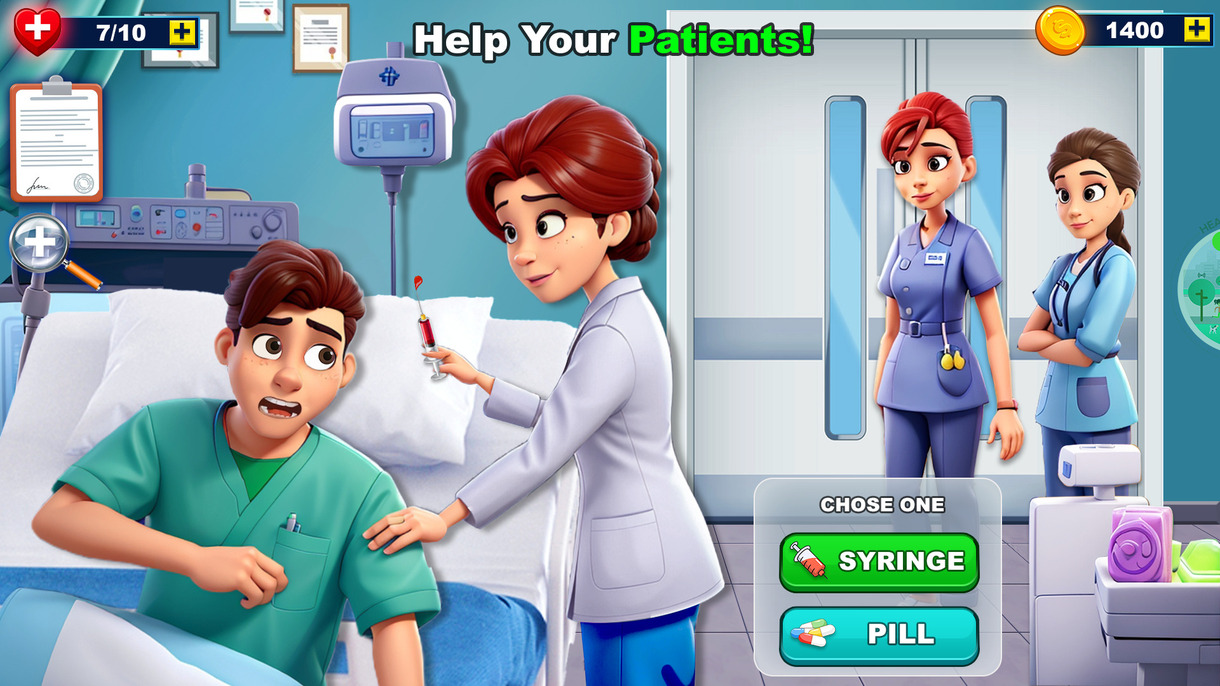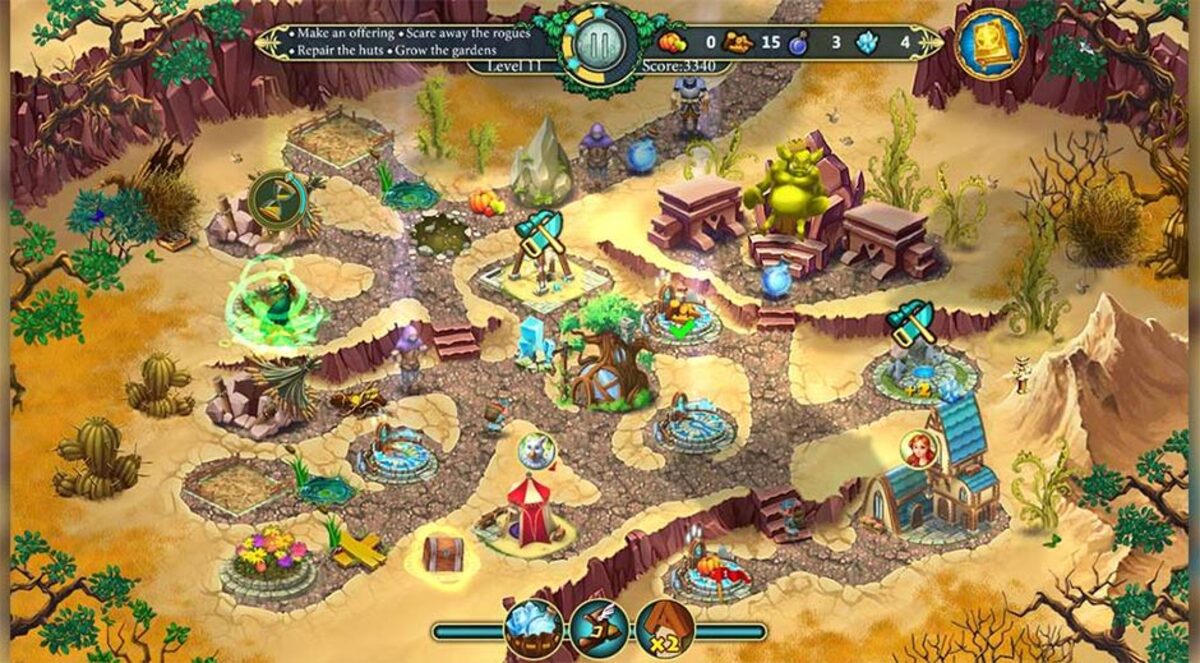What Are Hospital Games?
Hospital games immerse players in the intricate and dynamic world of healthcare management. These games are simulation or strategy-based, focusing on tasks like running a hospital, treating patients, managing staff, and addressing emergencies. They are popular among casual and dedicated gamers for their combination of creativity, problem-solving, and time management challenges. Targeting a diverse audience, hospital games appeal to those who enjoy strategic gameplay and those fascinated by the medical field. With features like customizable hospitals, engaging storylines, and challenging scenarios, hospital games have become a staple in the simulation genre.
Gameplay and Objectives
Hospital games revolve around operating a hospital while maintaining efficiency, profitability, and patient satisfaction. The primary objective is to diagnose and treat patients while managing resources and responding to challenges.
Players typically begin with a modest setup, like a small clinic, and gradually expand their facilities into a fully operational medical center. Success is measured through metrics like patient happiness, income, and the smooth operation of medical procedures.
Hospital games often feature intuitive controls that involve selecting, dragging, and placing elements like medical equipment or building rooms. Players need to hire staff, including doctors, nurses, janitors, and administrative personnel, to ensure operations run smoothly. Each role comes with unique attributes, like speed, efficiency, and skill, requiring strategic hiring and management.
Key Objectives
- Efficient Resource Management: Allocate funds wisely to upgrade facilities, hire skilled staff, and stock necessary medical supplies.
- Patient Satisfaction: Address patients’ needs quickly to keep satisfaction scores high and prevent negative outcomes.
- Crisis Management: Tackle emergencies like disease outbreaks, equipment malfunctions, or staffing shortages to maintain hospital stability.
Features and Highlights
Hospital games stand out for their detailed environments and engaging features that keep players hooked.
Dynamic Storylines and Challenges
Some games, like Two Point Hospital, feature quirky narratives involving unique diseases that require imaginative treatments. These challenges encourage players to think creatively while managing their hospitals. Others focus on realism, requiring players to handle realistic diseases, surgeries, and even medical research.
Customization Options
Players can design their hospitals down to the smallest detail. From choosing floor plans to decorating rooms, customization options allow players to create unique layouts that enhance efficiency and aesthetics. This feature adds a personal touch, making every game experience distinctive.
Multiplayer and Competitive Modes
Some hospital games offer multiplayer modes where players can collaborate with or compete against others. Collaborative modes involve shared hospital projects, while competitive modes challenge players to outperform others in metrics like patient numbers or income.
Realistic Simulations
Modern hospital games often use advanced graphics and physics engines to simulate realistic medical procedures. These elements make the gameplay immersive, allowing players to experience the challenges and rewards of running a hospital.
Tips and Strategies
Beginner Tips
- Start Small: Focus on essential departments like general diagnostics and treatment rooms before expanding. This ensures that resources are used efficiently without overextending your budget.
- Balance Staff and Facilities: Hire the right mix of personnel to cover your hospital’s needs. For example, start with a general practitioner and gradually add specialists as patient numbers grow.
- Maintain Cash Flow: Avoid overspending on unnecessary upgrades early in the game. Prioritize profitable investments like faster diagnostic equipment.
- Optimize Layouts: Place critical departments close to one another to minimize patient travel time, improving efficiency and satisfaction.
Advanced Strategies
- Specialization: Dedicate specific areas of your hospital to specialized treatments, like cardiology or surgery. This helps streamline operations and improves patient throughput.
- Emergency Preparedness: Equip your hospital with backup staff and resources to handle crises like disease outbreaks or equipment failures. Training staff for multiple roles is an effective way to prepare.
- Invest in Research: Researching new treatments and technologies not only improves patient care but also increases your hospital’s reputation and income potential.
- Use Metrics: Continuously monitor key performance indicators (KPIs), such as staff morale, patient happiness, and revenue. Addressing weak areas proactively can prevent long-term issues.
Variants or Related Games
Variants and Spin-Offs
Games like Theme Hospital and Two Point Hospital are iconic examples of the genre. While Theme Hospital offers a humorous take on healthcare, Two Point Hospital modernizes the concept with advanced graphics and added complexity. Spin-offs often focus on specific niches, such as veterinary clinics, dental practices, or even fantasy hospitals treating mythical creatures.
Similar Games You Might Enjoy
- Planet Coaster: Although focused on theme parks, this game offers similar resource management and customization challenges.
- SimCity: For those who enjoy city-building, this game expands management strategies to an urban scale.
- Zoo Tycoon: Combining animal care with business management, this game appeals to fans of simulation genres.
The Origins of Hospital Games
The genre traces its roots to the late 1990s with games like Theme Hospital by Bullfrog Productions. Released in 1997, this title became a cult classic, praised for its humor and engaging gameplay. It introduced the concept of running a hospital while managing both medical and financial challenges.
How Hospital Games Have Evolved
Over time, hospital games have embraced technological advancements. Titles like Two Point Hospital and mobile games like Idle Hospital Tycoon have introduced real-time multiplayer options, enhanced graphics, and more intricate gameplay mechanics. Regular updates, expansions, and community-driven content have kept these games relevant and exciting for new generations of players.
Did You Know?
- Theme Hospital was one of the first games to address medical management with humor, introducing imaginary diseases like “Bloaty Head.”
- Some developers consult medical professionals to ensure their games are as accurate as possible.
- Many hospital game players report that these simulations inspired them to pursue careers in healthcare or management.
Why Hospital Games Are Worth Playing
Hospital games are more than just simulations—they offer a blend of strategic thinking, creativity, and fun. Whether you’re drawn to the thrill of managing a bustling medical center or enjoy solving resource management puzzles, these games cater to a wide audience. The ability to customize, strategize, and tackle challenges makes hospital games endlessly engaging and rewarding.
Share Your Thoughts
Have you played any hospital games? Share your favorite experiences and tips in the comments below. Don’t forget to explore other exciting gaming genres on our site for more inspiration!

